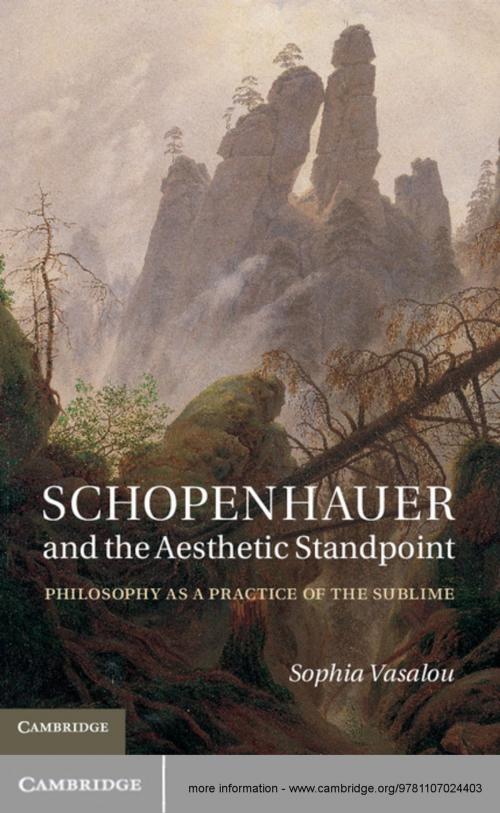Schopenhauer and the Aesthetic Standpoint
Philosophy as a Practice of the Sublime
Nonfiction, Religion & Spirituality, Philosophy, Aesthetics, Modern| Author: | Sophia Vasalou | ISBN: | 9781107241442 |
| Publisher: | Cambridge University Press | Publication: | July 18, 2013 |
| Imprint: | Cambridge University Press | Language: | English |
| Author: | Sophia Vasalou |
| ISBN: | 9781107241442 |
| Publisher: | Cambridge University Press |
| Publication: | July 18, 2013 |
| Imprint: | Cambridge University Press |
| Language: | English |
With its pessimistic vision and bleak message of world-denial, it has often been difficult to know how to engage with Schopenhauer's philosophy. Schopenhauer's arguments have seemed flawed and his doctrines marred by inconsistencies; his very pessimism almost too flamboyant to be believable. Yet a way of redrawing this engagement stands open, Sophia Vasalou argues, if we attend more closely to the visionary power of Schopenhauer's work. The aim of this book is to place the aesthetic character of Schopenhauer's standpoint at the heart of the way we read his philosophy and the way we answer the question: why read Schopenhauer - and how? Approaching his philosophy as an enactment of the sublime with a longer history in the ancient philosophical tradition, Vasalou provides a fresh way of assessing Schopenhauer's relevance in critical terms. This book will be valuable for students and scholars with an interest in post-Kantian philosophy and ancient ethics.
With its pessimistic vision and bleak message of world-denial, it has often been difficult to know how to engage with Schopenhauer's philosophy. Schopenhauer's arguments have seemed flawed and his doctrines marred by inconsistencies; his very pessimism almost too flamboyant to be believable. Yet a way of redrawing this engagement stands open, Sophia Vasalou argues, if we attend more closely to the visionary power of Schopenhauer's work. The aim of this book is to place the aesthetic character of Schopenhauer's standpoint at the heart of the way we read his philosophy and the way we answer the question: why read Schopenhauer - and how? Approaching his philosophy as an enactment of the sublime with a longer history in the ancient philosophical tradition, Vasalou provides a fresh way of assessing Schopenhauer's relevance in critical terms. This book will be valuable for students and scholars with an interest in post-Kantian philosophy and ancient ethics.















